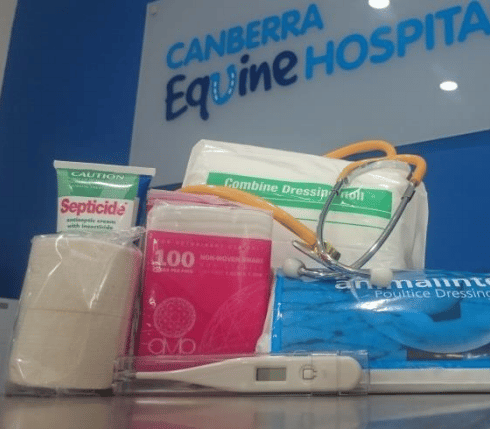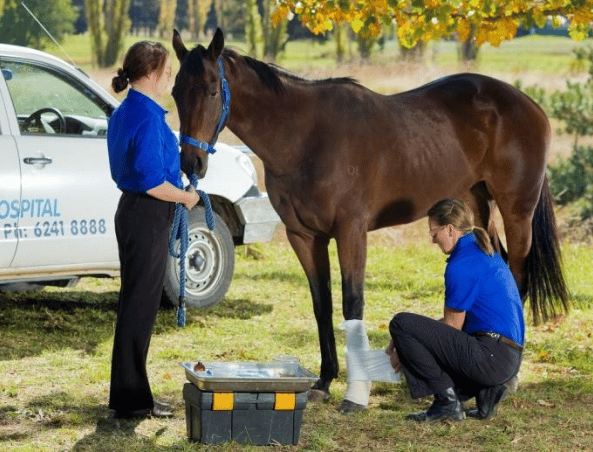 To help you prepare for an unexpected accident, illness or emergency with your horse, we’ve listed some important items to form a comprehensive equine first aid kit. Your equine first aid kit should be kept in a handy place for quick and easy access, and also be packed whenever travelling your horse. You should also know your horse’s normal vital signs. Refer to our information sheet on how to find them, and what the normal ranges are.
To help you prepare for an unexpected accident, illness or emergency with your horse, we’ve listed some important items to form a comprehensive equine first aid kit. Your equine first aid kit should be kept in a handy place for quick and easy access, and also be packed whenever travelling your horse. You should also know your horse’s normal vital signs. Refer to our information sheet on how to find them, and what the normal ranges are.
Whether it be colic, lameness, fence injuries, all situations are different – call us on 02 6241 8888 for advice on whether your horse needs veterinary attention. Remember you have access to our full emergency service 24 hours a day, seven days a week.
Suggested Comprehensive Equine First Aid Kit
General Items:
- Digital thermometer and lubricant (KY Jelly works well)
- Stethoscope
- Disposable gloves
- Bandage scissors
- Hoof pick
- Wire cutters
- Towels
- Torch
- Stable bandages and bandage pads
- Electrolytes (eg Salkavite, Humidimix)
- Molasses or another additive to encourage drinking, or to mix with powdered medications
that may be prescribed by your vet - Note pad and pen – to write down vital signs, important times, emergency phone numbers, over the phone advice from your vet, etc.
Wound Cleaning, Bandaging and Management:
All wounds are different – call us for advice on what to apply and how to manage specific wounds. Keep these bandage supplies and a selection of dressings on hand:

- Combine roll bandage padding
- Elastoplast rolls
- Brown crepe bandages
- Melolin dressings
- Animalintex/poultice material
- Gauze swabs
- Chlorhexidine and/or iodine scrub (dilute 1:10 solution with water as needed)
- Flamazine cream
- Yellow Lotion
- White Healer cream
- Septicide (contains insect repellent)
- Cetrigen (“purple spray”, also contains fly repellant)
